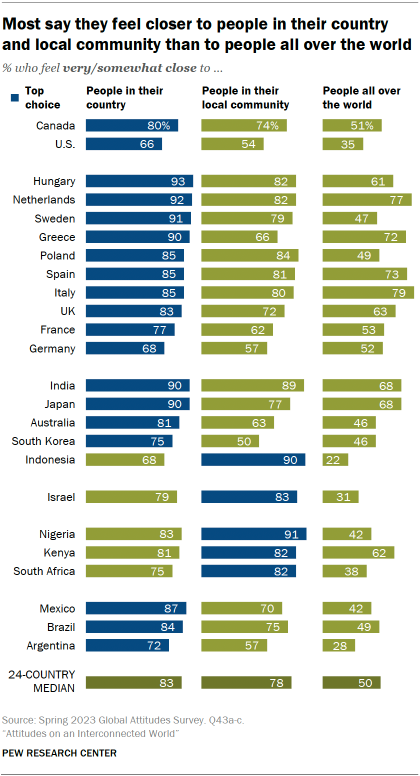
We asked respondents in 24 nations how close they feel to their community, their country and the world. A relatively similar pattern arises across all three questions, with most people feeling at least somewhat close to the people in their country (a median of 83% across 24 countries), somewhat fewer feeling close to the people in their local community (78%), and a smaller share feeling close to people all over the world (50%).
Many people say they feel close to all three groups – people in their country, their local community and all over the world – with a median of 39% holding this view across the 24 nations surveyed. In Spain, India, Italy and the Netherlands, six-in-ten or more fall into this group.
A median of 24% say they feel close to their local community and their country but not the world in general.
A median of 7% do not feel close to any of the groups asked about, including about two-in-ten among Americans and Argentines.
Closeness to people around the world
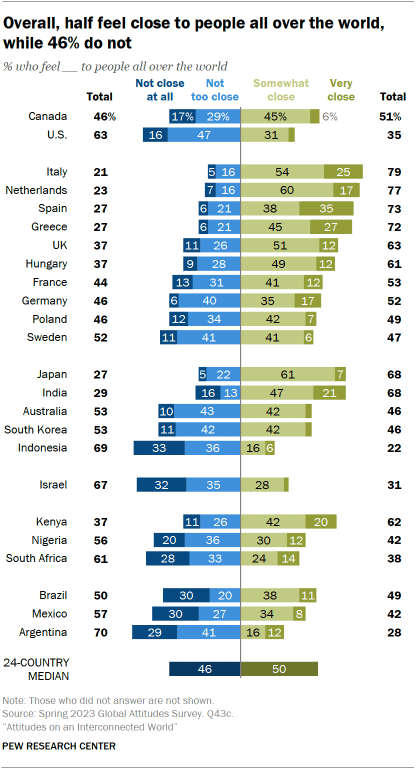
Across 24 countries, a median of 50% feel at least somewhat close to people all over the world, while 46% do not. The shares who say they feel close to people around the globe are largest in Italy and the Netherlands, where nearly eight-in-ten say they feel close to the world at large. In contrast, around a third or fewer say the same in the U.S. (35%), Israel (31%), Argentina (28%) and Indonesia (22%).
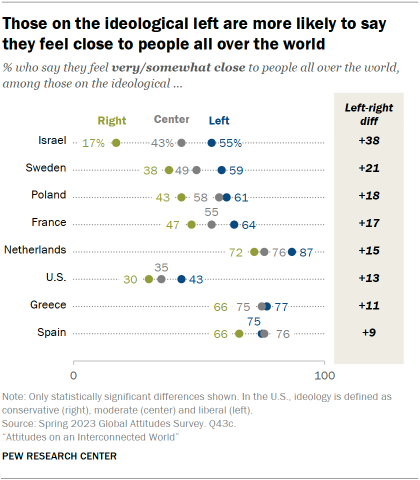
In Europe, supporters of right-wing populist parties are less likely to feel close to people all over the world. For example, in the Netherlands, supporters of both Party for Freedom (PVV) and Forum for Democracy (FvD) are 16 percentage points less likely to say they feel close to people around the world than those with an unfavorable view of each party. (For more information on how we classify populist parties, read Appendix A.)
Views also vary by ideology, with people on the left in several countries being more likely than those on the right to say they feel close to others around the world.
In eight countries, those with more education are more likely to feel close to people all over the world than those with less education.
Closeness to one’s country
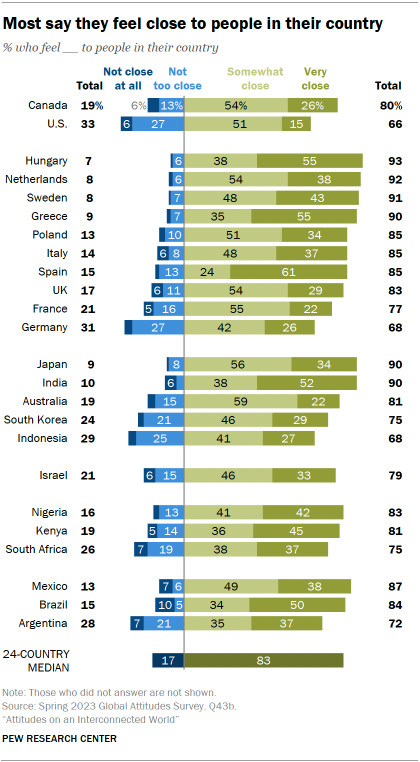
Most people feel close to people in their country. A median of 83% across 24 countries say this, while 17% say they do not.
Hungarians are the most likely to feel close to other Hungarians, with 93% saying this. Similar shares in Greece, India, Japan, the Netherlands and Sweden say they feel close to people in their country. Although a majority of Americans hold the same view, they are the least likely to do so (66%) across the countries surveyed.
In 14 countries, those who support the governing political party in their country are more likely to feel close to people in their country than those who do not support the governing party. (For more information on how we classify governing party supporters, read Appendix B.)
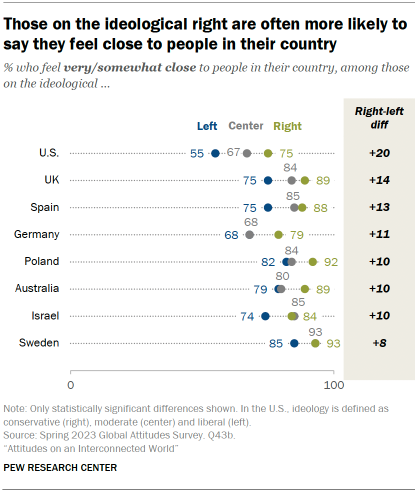
Notably, the U.S. is the only country where those who support the governing party are less likely to say they feel close to their country than those who do not. Six-in-ten Democrats and Democratic-leaning independents say they feel close to the people in their country, while 72% of Republicans and Republican-leaning independents say the same.
The U.S. also stands out for how views vary by ideology. U.S. conservatives are 20 percentage points more likely than liberals to say they feel close to other people in the country. There is a significant gap between right and left in seven other nations as well.
Closeness to one’s community
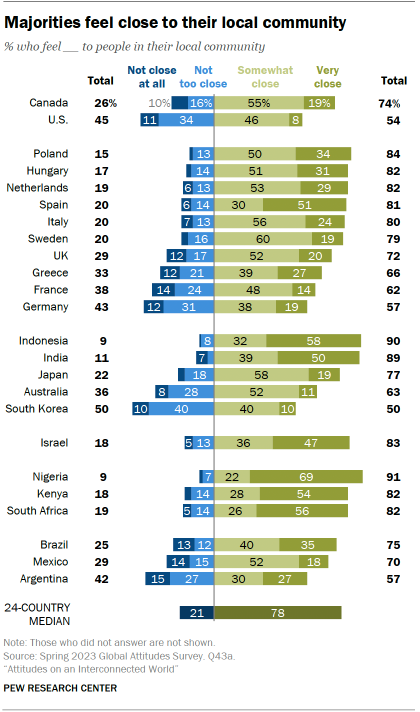
A median of 78% across 24 countries feel at least somewhat close to the people in their local community, while 21% say they feel not too or not at all close. In every country, at least half say they feel close to their community, but people in South Korea (50%) and the U.S. (54%) are the least likely to hold this view. Meanwhile, around nine-in-ten Nigerians, Indonesians and Indians say they feel close to their local communities.
In eight countries, those with a higher level of education are more likely to say they feel close to their local community than those with less education. For example, in Argentina, 73% of those with more education say they feel close to their local community, while 55% among those with less education say the same. The reverse is true in South Korea and Nigeria, where those with more education are less likely to feel close to people in their local community.




